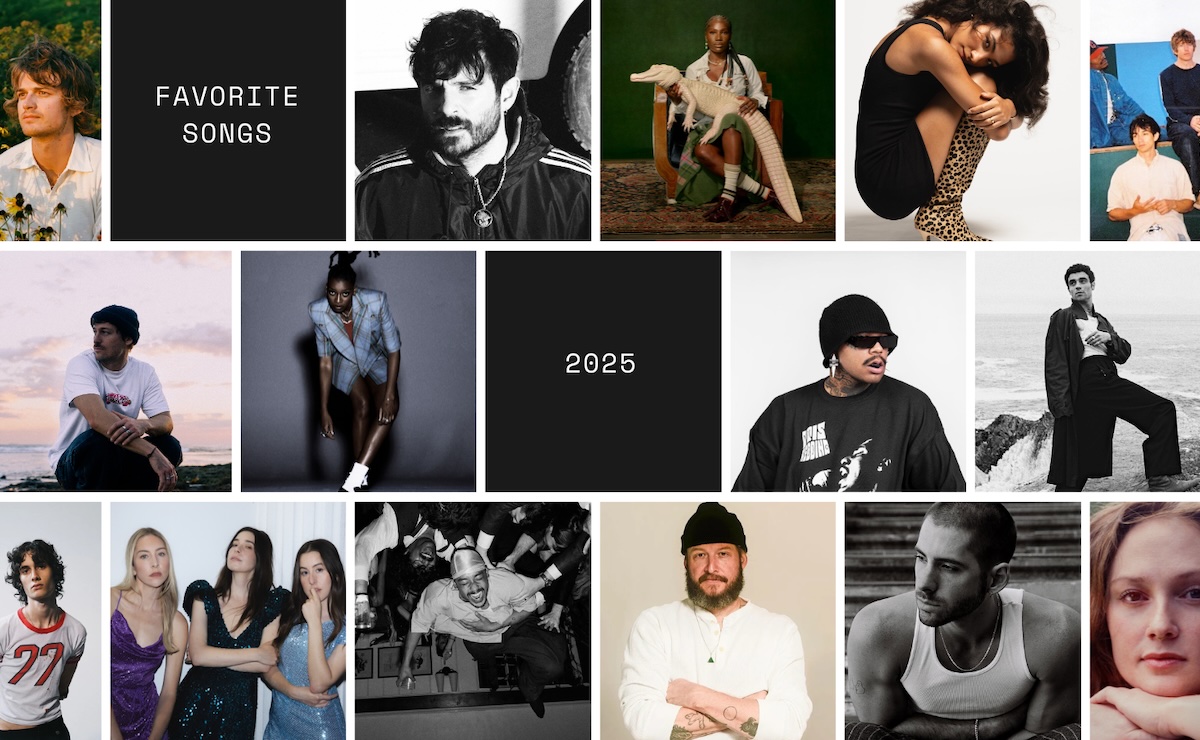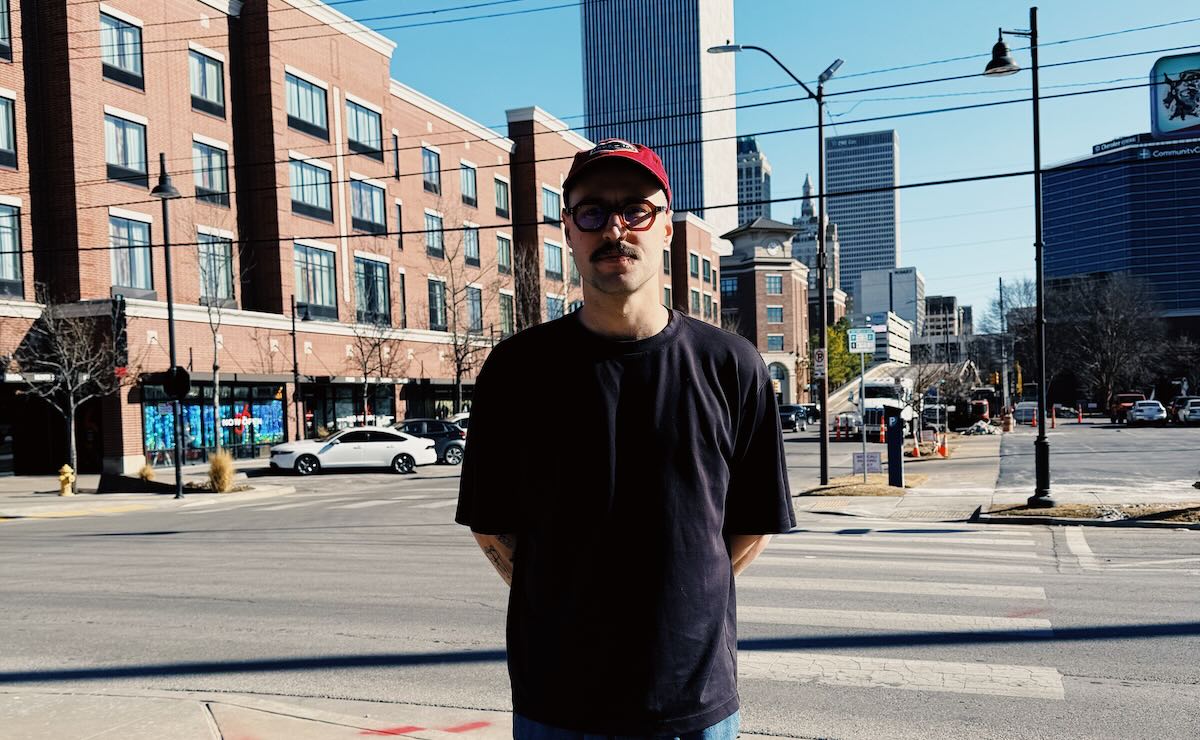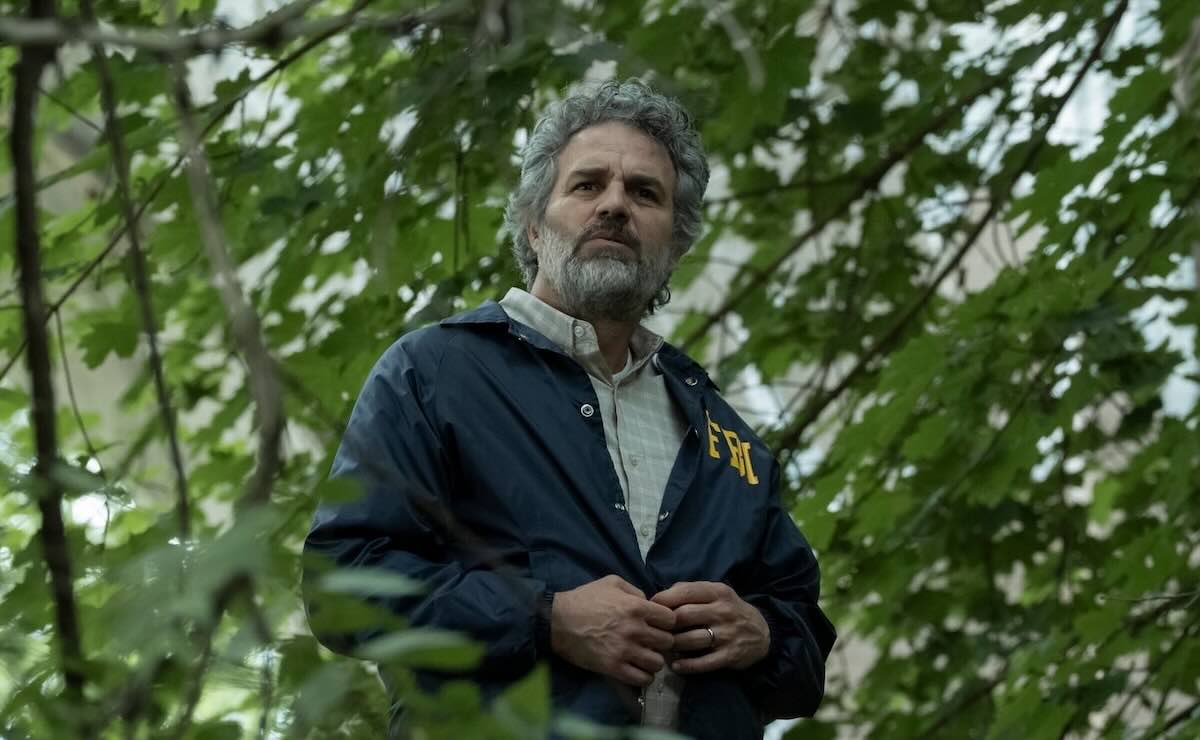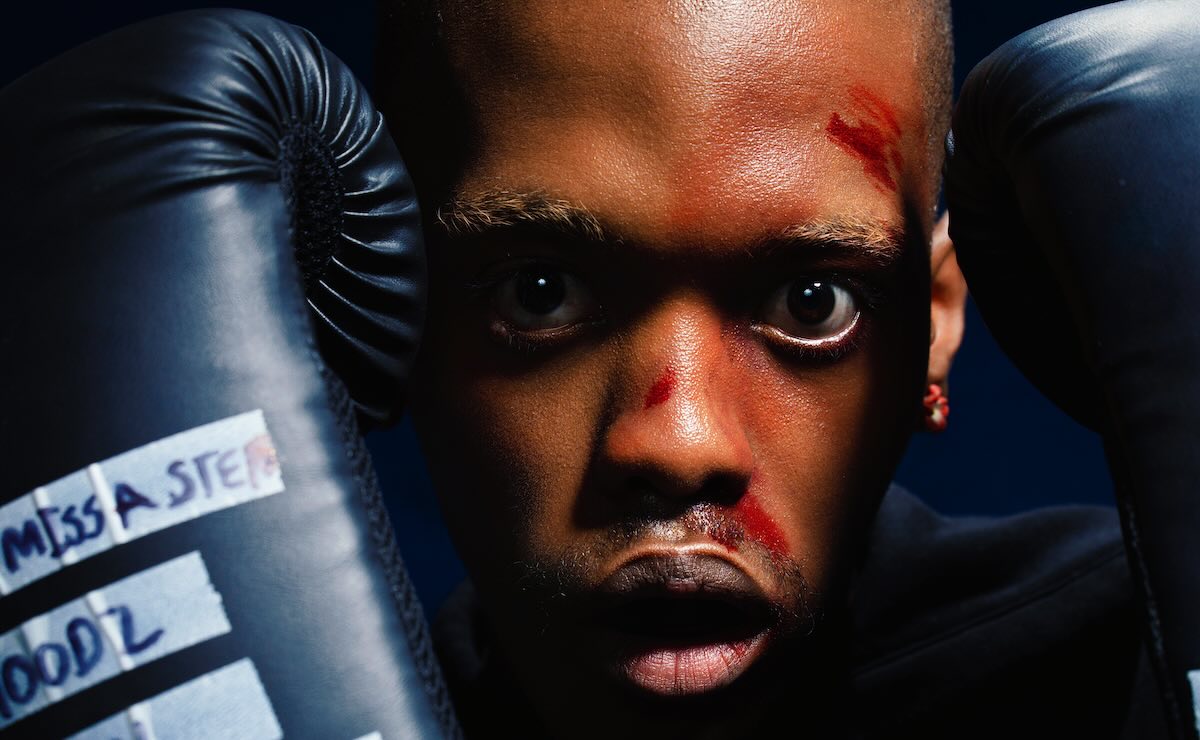
Editor's Note: This story first appeared in its original format in the new issue of Variance. Click here for the full version.
--
Photos by Darren Ankenman
It’s a sunny late winter afternoon in Austin and Mark Foster is enjoying a day off ahead of the release of Foster the People’s sophomore album, Supermodel. The next day, the band will perform their first show in the city in nearly two years.
A lot has changed since the group was last on tour. The “kids” that first took over the Web in 2010 with their infectious free download “Pumped Up Kicks,” well, they’ve grown up. Now 30, Foster says he had to do a great amount of “soul-searching” following a seemingly non-stop tour in support of their debut record, Torches.
“I had a lot of questions on the heels of that tour,” he recalls. “I kind of needed to clear my head. There was just a lot of information that had been coming at me without really having a release or a way to process it. So I felt like I had a big load of dirty laundry that I had to go through. I took some time to travel by myself and get away.”
Despite the time off, by late summer of 2012, Foster was back in the studio. In September of the same year, he was already in Morocco with producer Paul Epworth working on what would eventually become Supermodel. The initial plan was to dive into the new album, but Foster ended up scoring Alejandro Monteverde's new film, Little Boy.
“Looking back, I probably took too much on,” says Foster with a slight chuckle. “I just like to work. I don’t like to sit around. And I loved scoring that film, but it was one of the hardest things I’ve ever worked on. It was over an hour of original music. I bit off a lot and we didn’t end up finishing until February [2013]. The good thing is we had already written some ideas for the new album, so by March, we were working on it again and recording.”
The result was “something more human,” according to Foster, who credits Epworth with “capturing the soul in the room with some grit.” While the new material focused less on synths and electronic drums, instead being more guitar-driven, it wasn’t what the band expected going into the project.
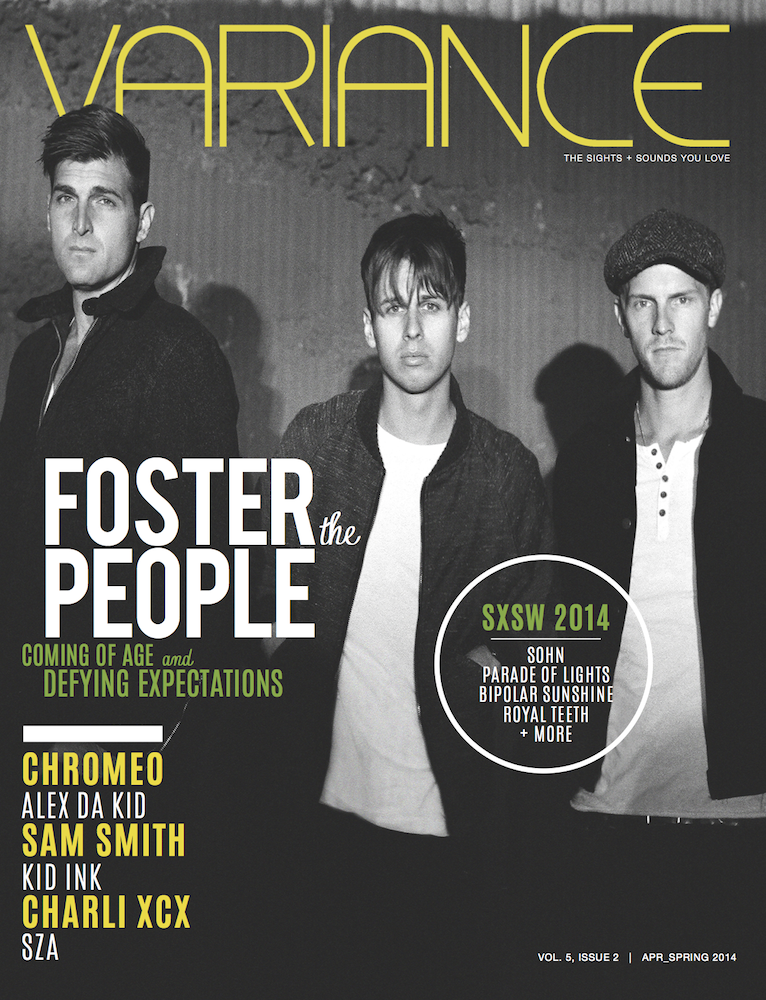 “It was probably the longest I had gone without recording,” Foster explains. “So when I started up again, I was just like, ‘Where did that come from?’ Like ‘Pseudologia Fantastica’ and ‘Beginner’s Guide to Destroying the Moon.’ Those heavier, kind of shoegazing songs. When those songs started coming out, we just started laughing because we thought, ‘Foster the People doesn’t sound like this!’ But now it does. So we went in with our own ideas, but those were just a platform to dive off of. The greatest freedom came when we let ourselves just explore and not be too contrived with the sound of the record.”
“It was probably the longest I had gone without recording,” Foster explains. “So when I started up again, I was just like, ‘Where did that come from?’ Like ‘Pseudologia Fantastica’ and ‘Beginner’s Guide to Destroying the Moon.’ Those heavier, kind of shoegazing songs. When those songs started coming out, we just started laughing because we thought, ‘Foster the People doesn’t sound like this!’ But now it does. So we went in with our own ideas, but those were just a platform to dive off of. The greatest freedom came when we let ourselves just explore and not be too contrived with the sound of the record.”
While Foster says he pulled from past musical experiences to provoke his songwriting, his time spent overseas ultimately served as a greater inspiration than he had anticipated.
“After the first album, I kind of got thrust into this Hollywood world,” he recalls. “I’ve lived in L.A. for the past decade, but suddenly I’m at a party with people I only knew from TV or magazines. I’m in the same room as these people who have everything they want, but they’re so unfulfilled. And I go to these other countries where they don’t have access to clean water or basic medical care, yet there’s a spark in their eye like you don’t see in the States. So much love. And that broke me. It forced me to deal with things within myself.”
What was supposed to be the making of a record turned out to be somewhat of a battle. As time went on, it wasn’t only himself and his own demons but also outside elements. “I could feel the expectations of people on this record,” he confesses. “I could hear them when I was in the studio and when we were recording the songs. Eventually, I had to take all that chatter in my head that represented our audience and our critics, and just leave it out of the studio.”
Fully aware of the expectations, fueled by their unexpectedly successful debut, Foster says he had to let go of the idea that he had to somehow prove critics wrong. And while he understands that not everyone will embrace the new record, he admits it’s puzzling to be referred to as a “one-hit wonder.”
“I had a guy recently ask me recently, ‘How does it make you feel when you think of ‘70s or ‘80s bands that were one-hit wonders?’ And it really caught me off guard and made me think about that whole idea in general,” says Foster. “It bums me out that it’s even a conversation that’s been had regarding my band—and a lot of the others lumped into that category—because it’s a derogatory term when you’re describing something that was extremely successful. Like, we’re an alternative band. ‘Pumped Up Kicks’ never should have been a hit, never. It never should have been top 40, or even top five. Same with Lorde. The fact that it did happen is a huge success for music. The fact that there are these alternative songs sandwiched between Rihanna and Beyoncé. I see it only as a good thing. I may never write another song like that again, but we were never supposed to. So I don’t have to defeat these expectations, we already did that.”
That’s not to say the new album is absent of hit-like singles. “Best Friend,” in particular, is driven by a catchy hook and like “Kicks,” the chorus, which is about a friend strung out on drugs, is ironically driven by an upbeat, radio-friendly melody.
“Sometimes lyrics just download themselves into my brain,” says Foster of “Best Friend,” a track he’s admittedly hesitant to label as a possible hit. “With that song, it was that first melody, that was what came first. And I didn’t know what was gonna follow, and so it became this whole chasing bit, writing the music around that part and using that lyrical piece to write the rest of the song. But halfway through writing the lyrics for it, I got stuck. Because of the subject matter, I felt trapped in how to approach it. If I wrote it one way, it would be glorifying drug use to the tune of a children’s chorus singing this innocent melody. If I wrote it another way, it could come off as patronizing or preachy, like, ‘Don’t do drugs, everybody!’ And I got stuck with a massive case of writer’s block. So everybody was waiting on me to finish it because it was the last piece needed to complete that particular phase of the record. I felt like I was running out of time and I had a lot of pressure on me, so I wrote about writer’s block. Because that’s what I was feeling. My best friend being creativity. And creativity for me at that time was strung out.”
{youtube}xruNgUPGuwM|600|338|{/youtube}
While the band’s label Columbia was ready for an album to arrive last year, recording delays weren’t the only factor influencing the set’s eventual postponement. According to Foster, the goal had been to release it this past fall, but there were a lot of changes that had to be made.
“When the record was finished and it was going into being mixed, it was 30 minutes longer than it is now,” he reveals. “I mean, dude, it took the full five more months. Five solid months. I was still so close to the project that it was really just hard to let go of certain parts. When I was writing the record and when we were in the studio recording, it was such a myopic process because you’re looking only at that song through a microscope, so nothing else matters. With lyrics and the vibe and everything, it’s only about that one song at a time. The scariest moment is when you step back to listen to the album all the way through for the first time because you don’t know what the arc is going to be and how it’s going to make you feel. For this record, when we listened to it all the way through for the first time, it was exhausting. There was so much information. All the songs were about six minutes long and there were about 14 tracks. We didn’t even think it would fit on a CD. It was just too much.”
So the group began collectively “trimming off some of the fat,” trying to make the recordings fit together like pieces of a puzzle. “How do you make this record so that when it’s been played all the way through, you want to start it over again?” That was their challenge.
“Our goal was to release a cohesive body of work,” says Foster, explaining that despite their success on radio, they’re “not a pop band, so we don’t play by those rules, the radio rules. I want to build a career. I don’t want to just be the flavor of the month. And I feel like a lot of times if you put out a great single without a great album, you’re gonna live and die by that single. People don’t have any sort of loyalty or connection to you if you’re just putting out vapid singles. Sure, the songs may do well because they have a hook that’s undeniable, but there’s no substance. For me, growing up, one of my favorite bands was Blur. I would fall in love with the whole record. And their singles might not have even been my favorite songs. The songs I connect to are the deep album cuts, because they put thought into what they did. They weren’t doing it for success, they were doing it because it was what they loved.”
In an industry increasingly driven by players such as Spotify and now Beats Music, Foster acknowledges subscription and streaming products do present an additional test for musicians, but he says he has no qualms with those services, insisting it’s the responsibility of the artist to make a desirable album.
“People are going receive music somehow,” he says. “I personally like to put [an album] on the first song and listen to it all the way through. And if the music is good, I’ll listen to it over and over again. I love it when an artist really puts thought into the whole album and creates a journey for the listener. Like Yeezus. I feel like Kanye did exactly that. I love the flow of that record. And at points, it feels like a mixtape. It’s a roller coaster. That record wasn’t meant to be cherry-picked. It was meant to be played from the beginning through the end.”
Of course, a full album takes time to create. And in today’s swiftly moving market, a year might as well be a lifetime to wait for new music. So for a band like Foster the People, finding the right balance is crucial.

“The culture that we’re living in is so fast-paced,” Foster assesses somewhat reluctantly. “So do you give them what they want because their appetite is like this insatiable beast? Or is it OK to make them wait, while you work on something great? And if it’s great, they’ll forget about all that time they waited and they’ll love it. And you satisfy that appetite, that hunger. It’s like Dr. Dre with Detox. We’ve been waiting forever for that album, and I don’t know if it’ll ever come out. But I’ll tell you what, if that record does come out, it’ll probably sell the most [copies] in its first week out of anyone in the past five years. The appetite is still there. I don’t what the winning formula is yet. But I do know that once an album is out, it’s out forever. The time in between will be forgotten, but the music won’t. This time around, it was important for us to take the time to make the record we wanted to make and give ourselves time.”
In the process of making this new album, the former jingle writer says he’s learned the importance of time. Despite his unyielding desire to constantly stay busy, he admits he has a newfound appreciation for down time.
“When I’m home, I home,” he says determinedly. “I don’t go out. I’m an introvert really, so I’ll just sit on my couch. I just finished True Detective and House of Cards. They’re so good, and they’ve really switched the game up in television. I enjoy stuff like that. And I’m also realizing when I need to have a couple weeks to myself or time for meditation. So if I’m super overwhelmed, I’ll plan some time off. Otherwise, you feel yourself falling apart. But I guess that’s also how I arrived at this new album.”
{youtube}y7SDPDmWrNo|600|338|{/youtube}
Ultimately, Foster hopes his pain will lead to solace for others. “I put blood into this record, lyrically,” he says. “I cut a piece of myself and bled into this record. And I hope if anybody takes anything from this record, it’s a piece of myself. I hope they’ll feel closer to me. And in the vulnerability of talking about all the things I’m really bad at—because I think the record is so much of a confession of my weaknesses and my struggles, I hope it gives someone courage. I hope it gives them a sense of camaraderie in knowing that someone else is going through the same thing.”
One thing Foster doesn’t anticipate to be identical is the band’s new tour schedule compared with their last, which consisted of more than 300 stops by the time they finally wrapped. He doesn’t expect to duplicate that this time around.
“We needed to tour last time,” he admits confidently. “It was important for us to show people that we were a band and not a song. I never want to tour like that again though. We were building a foundation then. Now I just want to be more prolific. I want to put more stuff out regularly. I don’t want to have a three-year album cycle. Not just for my career but for my health. I’m thinking tour maybe for a year, then get back in the studio and put out another album.”
--
Foster the People is currently on tour through August. Dates and information can be found at fosterthepeople.com/tour.






